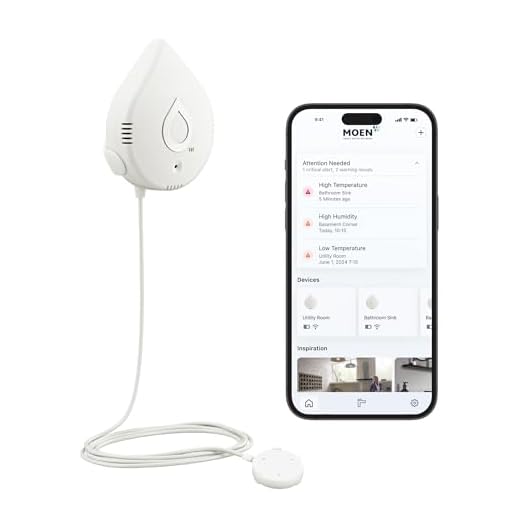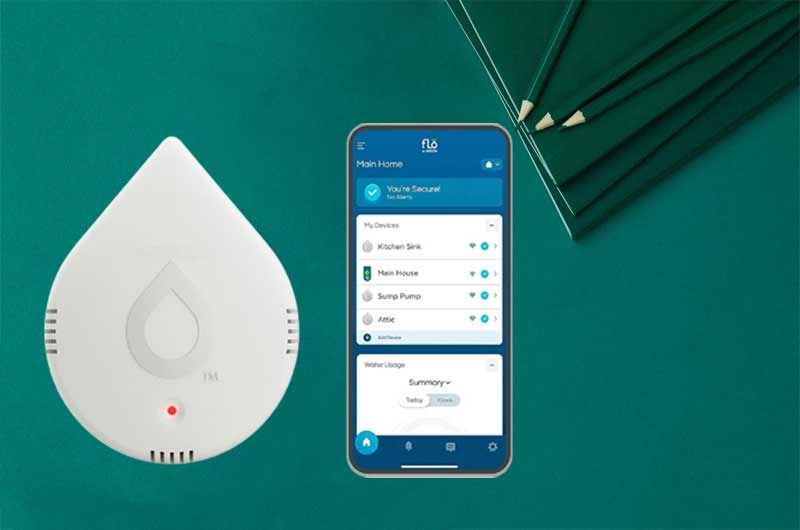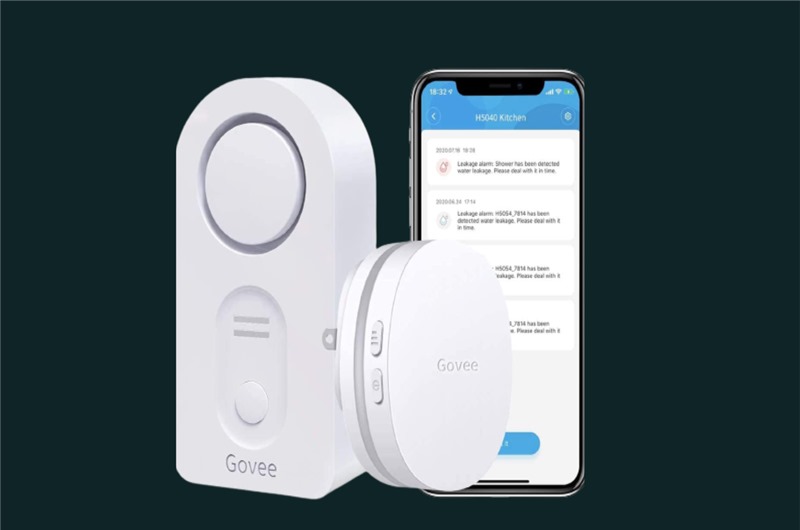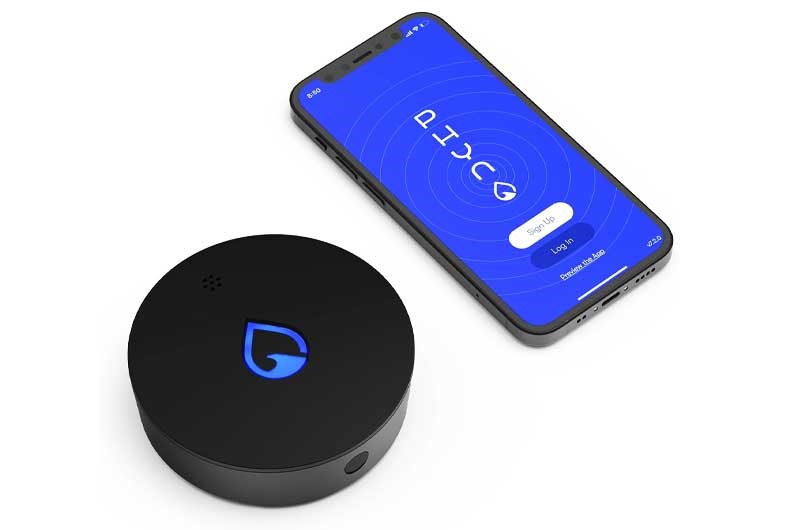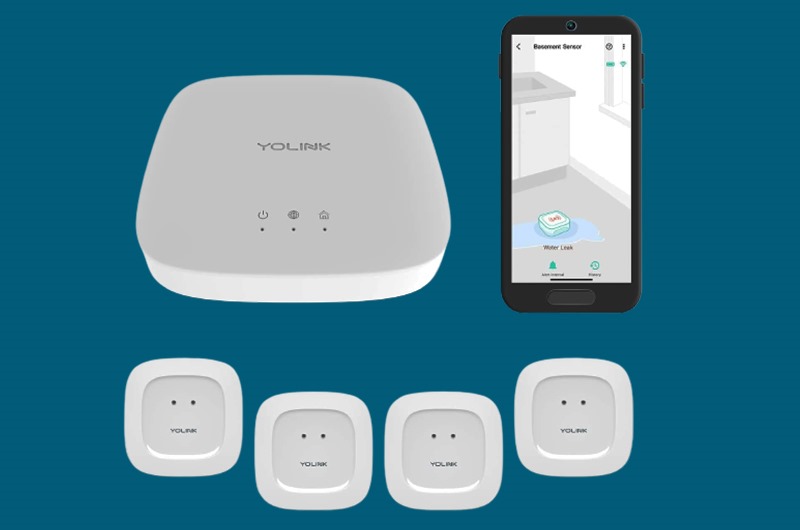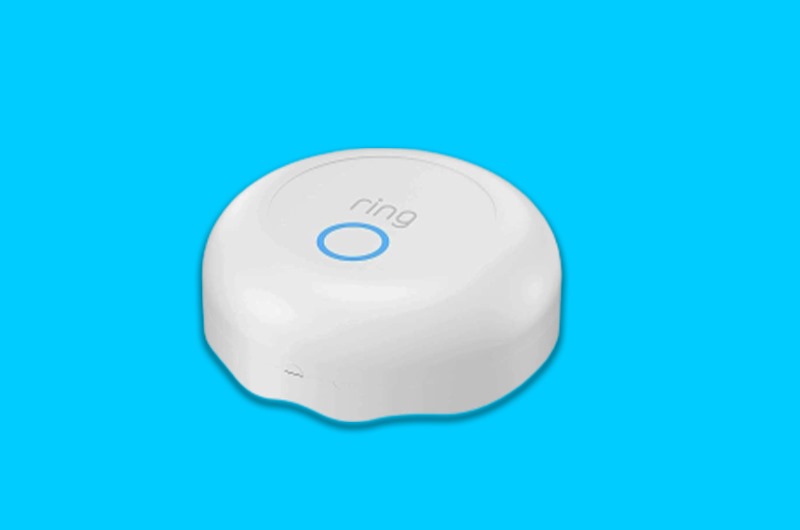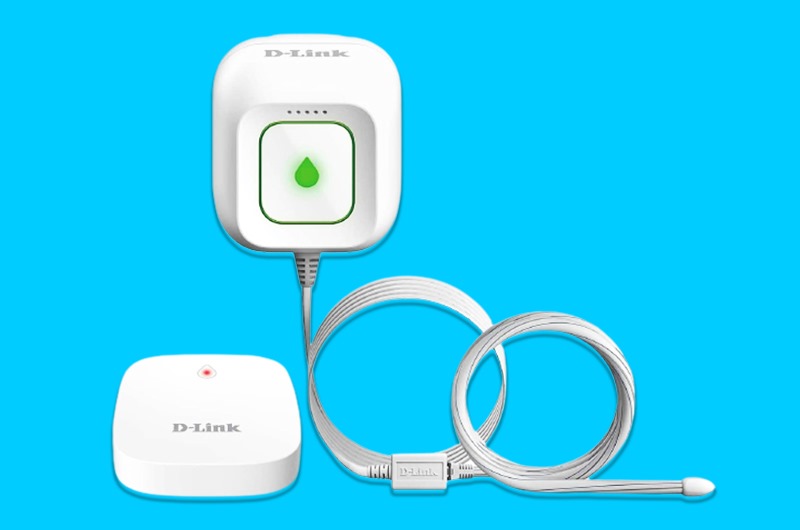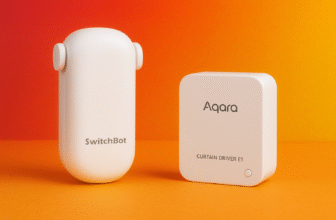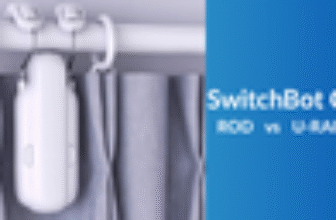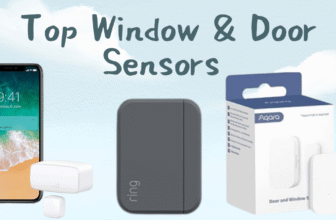
Are you worrying about the possible water leaks in your basement, from your water heater, under your slinks, and anywhere else in your home? Then the smart water sensor is a solid choice for your smart home to prevent water damage in hard-to-reach areas.
The smart water sensor helps you to nip those troublesome leaks in the bud, alerting you before a few drips turn into a tidal wave. Thus, it saves you from expensive repair costs, mitigates water damage, and even maybe cuts your insurance premium.
Wondering how it does so, right? Let’s dig deeper and illuminate every fact about water sensors that can help you to prevent water damage to your home, of course without expending a lot!
What Is A Smart Water Sensor?
A smart water sensor is a Wi-Fi-based water detector that enhances home water security, identifying minor leaks as well as major burst pipes. It is designed to detect the presence of water where it doesn’t belong. And thus it protects your home against water damage.
It has the added convenience of a smart home detection system. This smart Wi-Fi water sensor alerts you when a problem arises via sending a notification, allowing homeowners to take action to prevent water damage.
Some detectors also come with advanced features like temperature and humidity monitoring sensors. These sensors alert you about sudden changes in temperature as well as frozen pipes. All these smart sensors provide an additional layer of safety that ensures your property is safe and protected at all times.
How Do Smart Water Detectors Work?
Smart water leak sensors work by detecting the presence of water in specific areas where the water generally should not be. They typically use two types of methods to detect the water. They include-
- Probe-based sensor
- Flood sensor
Once the sensors detect the water, they send the signal to the homeowner on their mobile app. So, they can take appropriate action to prevent the damage. Some smart sensors also have the feature to stop the water supply automatically to prevent a tiny leak from becoming a large one.
However, it’s worth noting that these sensors can be installed in those places where water damage can occur without warning, like near toilets, under sinks, around pipes and, by appliances like dishwashers, hot water heaters and washing machines.
How Much Does The Smart Water Detector Cost?
In the case of cost, you can find a variation based on the model or type. However, you can expect the cost between $50 to over $500 for the smart water sensors.
| Smart water sensor | Price |
| Smart water sensor with wireless control | $99.75 |
| Smart water sensor with remote control | $101 at prime |
The more affordable models are simple leak detectors that usually lack Wi-Fi communication. As you move on price, you gain access to features like extension cables, LED indicators, environmental monitoring, and sirens, as well as numerous home integration options.
Pros And Cons Of Smart Water Sensors At Home
Well, let’s now go through all the greatest points and downwards of the smart water sensor that you should know.
| Pros | Cons |
|
|
So, Are Smart Water Sensors Worth It?
So, what do you think, are smart water sensors worth it or not? Well, you know, the smart sensor is the best and most reliable choice among people for a reason. Their advanced technology enables you to remotely turn off the water to your home from your smartphone.
Waters are one of the leading reasons for costly home damage. Every year, one in four homes sustains thousands of dollars in water damage. But luckily you can protect your home from this water damage by installing a smart water sensor.
It gives you a complete image of your home water system, including pressure level, and water temperature. Moreover, it is a moisture detector that detects even the smallest puddle upon contact and automatically shuts off the water supply.
So, of course, the smart water detectors are worth it. However, it’s important to consider which you want to buy. For you, we brought some of the best leakage detectors that are ruling in the market. Check it out below.
Best Smart Water Sensors That Are Ruling In The Market
As there are a number of brands of water sensors available in the market, it can be somehow tricky to pick the best one. That’s why, to put out the dilemma, check our best selections of water sensors.
#1. Flo By Moen Smart Water Detector: Best For Overall
Specifications
| Compatible device | Washing machine |
| Noise level | 51dB |
Overview
The Flo smart water detector is one of the best leak detectors. It alerts you to the presence of water where it doesn’t belong by 24/7 monitoring. The valve of this detector helps to prevent further damage by turning off the water supply.
| Standout Features | Reasons To Avoid |
|
|
#2. Govee Water Sensor: Wi-Fi Water Sensor
Specification
| Compatible device | Smartphone |
| Noise level | 100dB |
Overview
The Govee water sensor is a loud water sensor with 100 dB audibility. It ensures that you’ll be alerted immediately to the alarm detection if there is even a hint of water. But what sets it apart is its ability to send alerts in email which means you can get notifications even without having their mobile app.
| Standout Features | Reasons To Avoid |
|
|
#3. Phyn Smart Water Sensor: Best For Environment Sensors
Specifications
| Power source | Battery powered |
| Price | $49.99 |
Overview
Phyn smart water sensor is a solid choice for a standalone water detector. It alerts you visually, audibly, and with notification or SMS that moment when it comes in contact with water. Also in the Phyn mobile app, you can customize alert thresholds for potentially damaging low or high humidity.
| Standout Features | Reasons To Avoid |
|
|
#4. Yolink Water Leak Sensor: World’s Largest Range Smart Water Sensor
Specifications
| Compatible device | iPhone or Android |
| Noise level | 105dB |
Overview
Don’t just detect the water, when you can protect the water from damage by using a Yolink water leak sensor. The sensor has an automatic shutoff feature which helps you to reduce water damage.
| Standout Features | Reasons To Avoid |
|
No specific information is available |
#5. Ring Leak Detector: Smart Flood Detector
Specifications
| Operating Conditions | 32°F to 120°F |
| Price | $34.99 from Home Depot |
Overview
Ring leak detector is designed to protect your home from flood and water damage. It works like a charm and sends pop notifications or alerts as soon as it comes into contact with water. Another amazing fact of the ring leak detector is that you can get the product with Alexa integration feature that allows users to detect leaks more efficiently. It alerts you when the temperature drops below 4° to prevent frozen pipes.
| Standout Features | Reasons To Avoid |
|
|
#6. D’link Water Sensor: Best Support Resources
Specifications
| Compatible device | Washing machine |
| Noise level | 100dB |
Overview
The D-Link water sensor is an easy or quick way to protect your product and valuables from damage by water leaks. The built-in 100dB siren and bright LED light are perfect for alerting you when you are at home. And if you’re not, then the D’Link water sensor sends push notifications to your Android or iOS.
| Standout Features | Reasons To Avoid |
|
|
Frequently Asked Questions [FAQs]
What Type Of Sensor Is a Water Sensor?
A water sensor is a smart detector that detects the water level for a diverse range of applications. It comes with different types of sensors including float, bubbler sensors, ultrasonic sensors, and pressure transducers.
How Long Do Water Sensors Last?
Water sensors remain in use for 5 to 10 years or more, depending on quality, band, or usage. Usually, Lithium battery water sensors last for 10 years or more, and chemical detector cells last for not more than 7 years.
Why Is My Water Sensor Not Working?
When the water sensor of your house isn’t working it can be caused by a couple of things. For instance, it can be caused by a weak or low connection between the base or device, the battery being dead or the sensor being not correctly installed.
Final Words
In conclusion, here we’re ending after highlighting all the details about the Smart Water Sensor. After careful consideration, we hope that all your doubts and confusion regarding whether or not to add this smart water sensor to your smart home have been cleared. Thank you for taking the time to read this.
Check Out The Best Smart Water Sensors With Live Prices From Amazon
